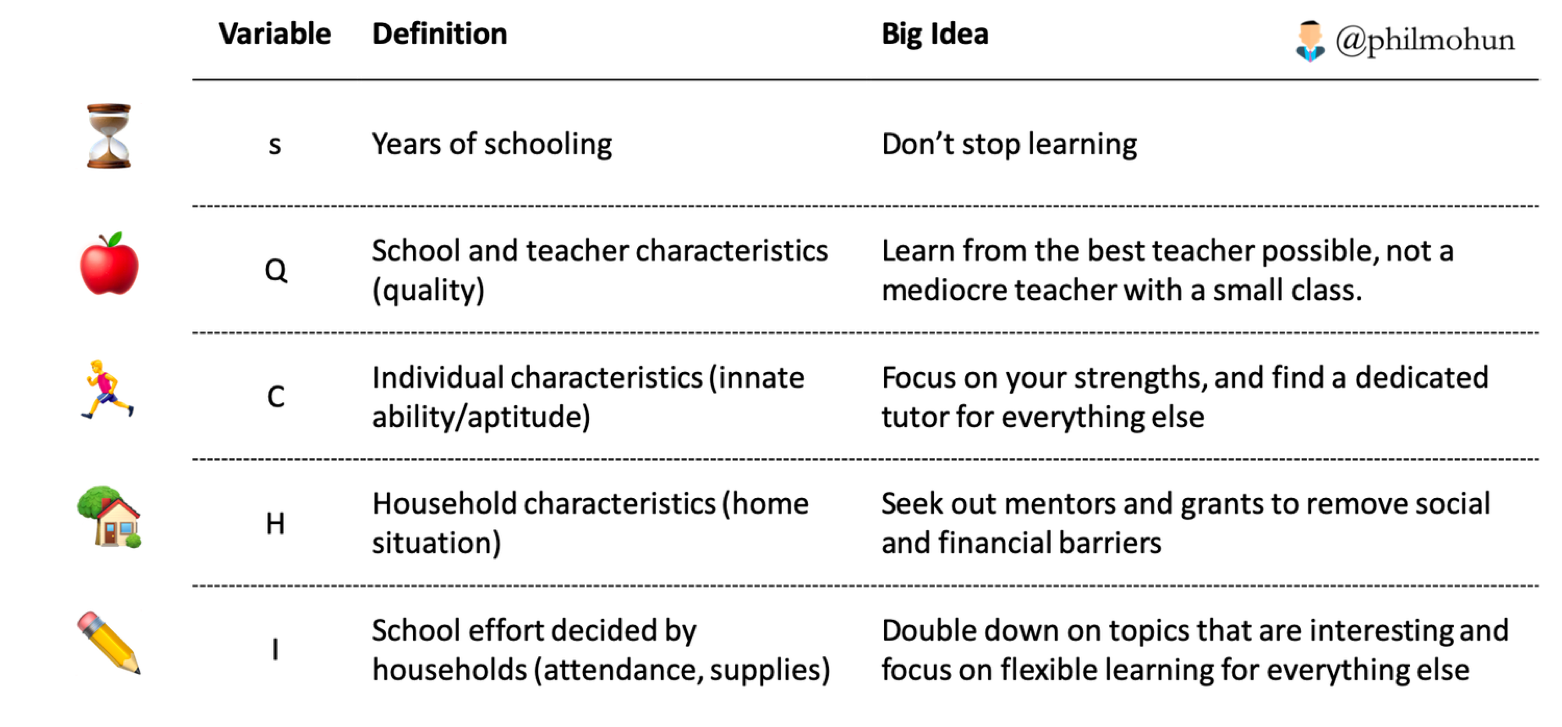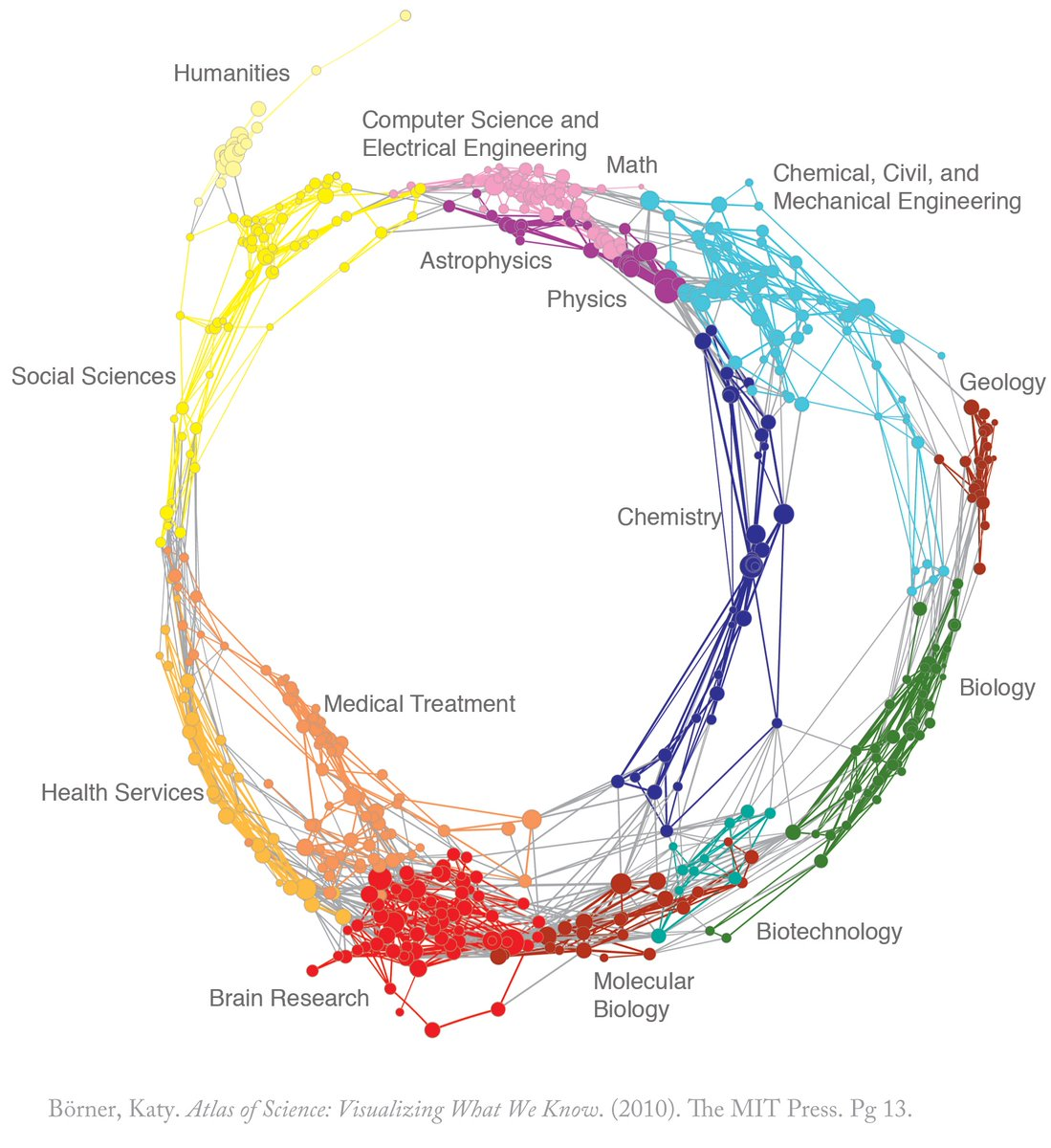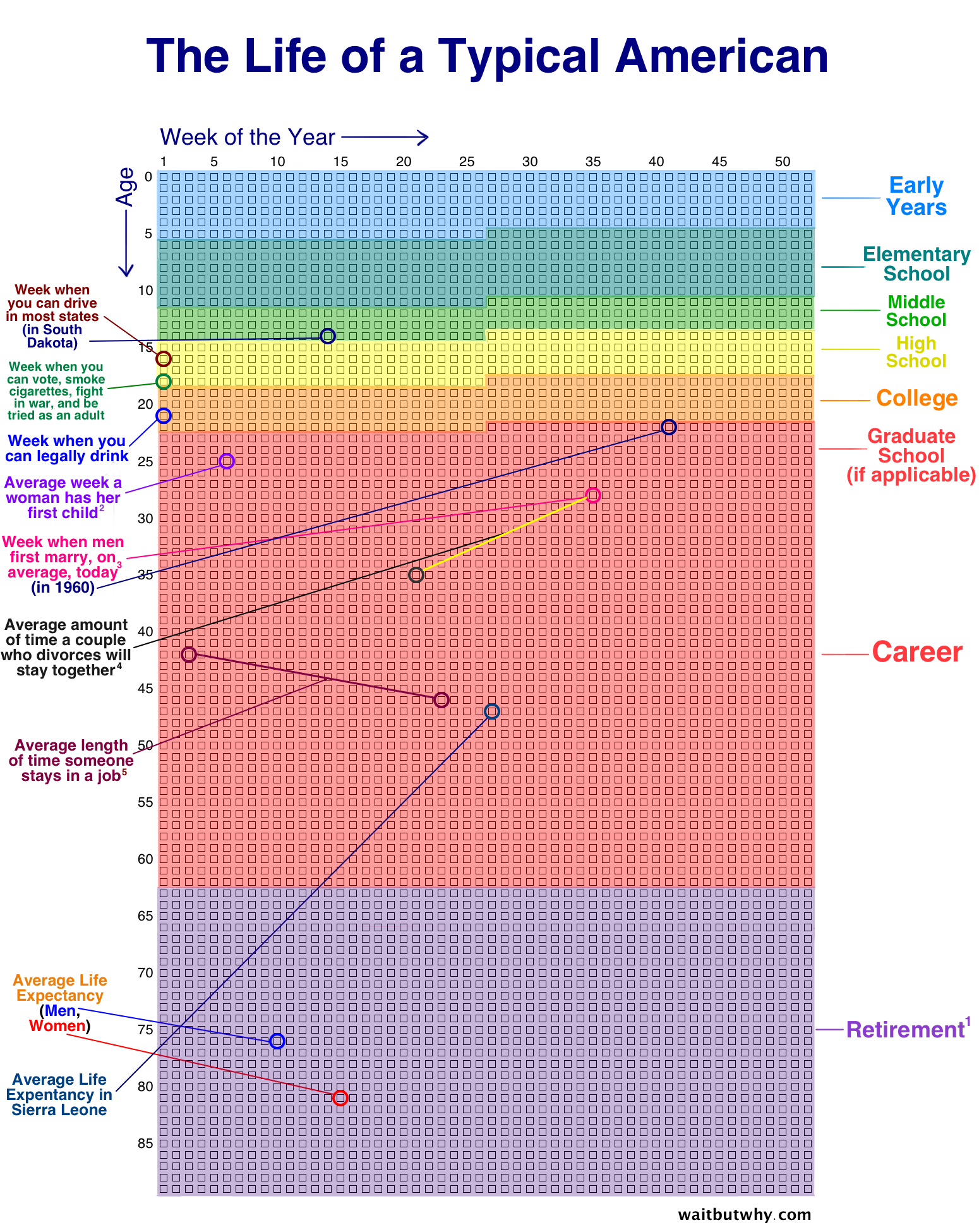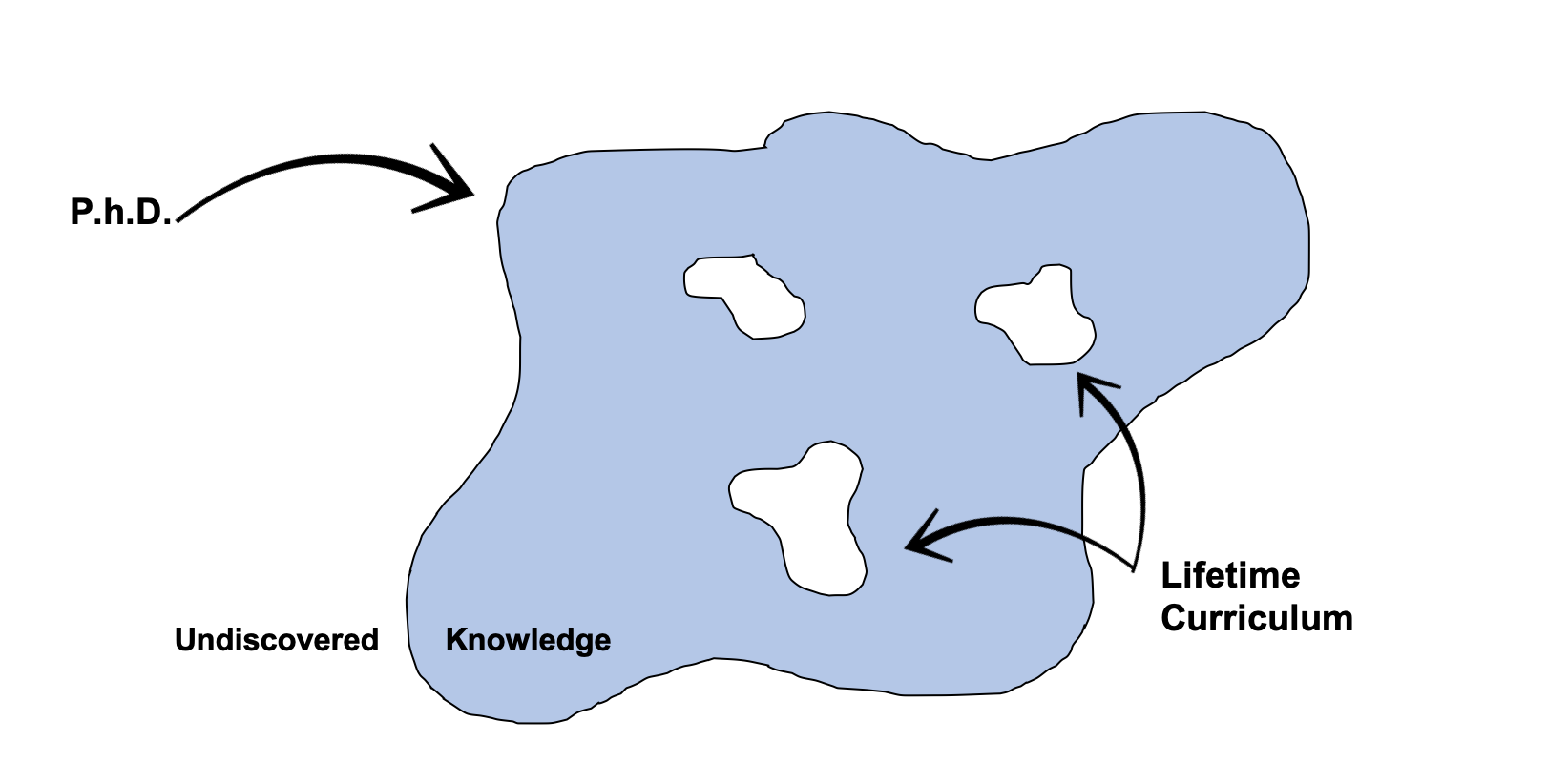The Lifetime Curriculum, Revisited
In March, I talked about how different education systems work around the world:
- Return on Education: What is the return on investment for education?
- Continuing Education: How do we measure education globally?
- Unbundling Education: How do we separate social development from education?
Besides giving me a better understanding of non-Western learning styles, these essays also sparked an idea that I first mentioned in Return on Education. Here is the quote:
If you’re like me, you’ll be working from home for the foreseeable future. Replacing your commute with just a few hours of learning each week will massively boost your creativity and make for a more intellectually rewarding experience. There is an apocryphal story making the rounds about Isaac Newton producing his theory of calculus during a quarantine caused by the plague. While this may or may not be true, there is something stimulating about long stretches of uninterrupted time.
I’m putting together a Lifetime Curriculum that will be my roadmap for continuous education. Rather than relying on textbooks that are out of date by the time they’re written, this curriculum will include links to Youtube videos, seminal papers, and blog posts from the world’s best and brightest.
I love the idea of a Lifetime Curriculum because it totally ignores the conventions of formal education. Universities today feature four-year cycles, but there’s no reason why this is the only way to learn. A lifetime curriculum breaks this mold by introducing continual learning. The learner doesn’t need to take on a huge barrage of new material all at once. Instead, it allows learning to integrate into daily life gradually.
Here’s how I think about it:
We tend to focus on years of schooling, but other factors in education are just as important. The term for these factors is the “Education Production Function” that I first covered in Continuing Education:

In the above formula:
- A represents skills learned
- s is years of schooling
- Q is teacher quality
- C is innate ability/aptitude
- H is home situation
- I is attendance rate

A Lifetime Curriculum has the potential to win along each axis, not just time. Focusing on these other factors — teacher quality, networks, and effort — gives the Lifetime Curriculum an advantage over a traditional four-year program.
Once we leave school, it’s easy to lose focus on learning. Education takes a backseat to work and life. This lack of attention is why people choose to go back to school: universities provide the structure that pushes students to expand their perspective.
The Lifetime Curriculum asks whether we can do this without universities.
Last week I sat down and browsed through the degree programs of the top ten private U.S. universities. Here are the topics that stood out to me:
- Synthetic Biology
- Bioinformatics
- Calculus
- Linear Algebra
- Philosophy
- Marine Biology
- Oceanography
- Meteorology
- Environmental Studies
- Electrical Engineering
- Mechanical Engineering
- Artificial Intelligence
- Macroeconomics
- Software Engineering
- Journalism
- Business
- Progress
- Art History
- Food & Wine
- Architecture
- Neuroscience
- Statistics
- Energy Resources Engineering
- Physics
- Genomics
- Product Design
- Forestry / Outdoor Living
The list is long, but so is a lifetime of learning.
I’ve intentionally avoided dividing these topics into categories like “Liberal Arts” or “Engineering.” I believe that creativity is the ability to put seemingly unrelated things together in a way that creates value. In my essay Advice to Seniors, I described how these assigning these categories hurts creativity:
Notice the lack of connections between fields like chemistry and social sciences? Physics and medicine? This gap is not a coincidence.
To create a successful education for yourself, pick two points on the opposite side of the circle, and become the expert in how they relate. If your college doesn't have a name for the intersection of the ideas you're interested in, it's likely a fault of the college and not your own. This type of knowledge is valuable because it's unique. If you can pick up your education from a book, so can someone else, and they can replace you. Focus on finding knowledge that gives you a perspective that others are unable to see.

The process I’m envisioning is a modern P.h.D. that rewards breadth over depth.
Here’s the breakdown:
A P.h.D. typically takes between 3 and 6 years of self-directed study with an advisor. If candidates spend between 35 to 70 hours per week, this amounts to 5,250 - 21,000 hours. For comparison, a modern career tends to last ~80,000 hours.
Here’s a great visual from Wait But Why:

The goal here is to use that big chunk of red and purple to learn a broad range of topics meaningfully. Instead of focusing on specializing for a few years, a Lifetime Curriculum prioritizes obtaining a broad range of skills over a long period.
A P.h.D. program produces experts in a specialized field. This format encourages P.h.D. graduates to expand our knowledge by exploring the edges of a very narrow topic.
The problem is that the gaps in our knowledge don’t always appear at the edges of a specific topic - more often, our gaps are holes where we have not yet combined two ideas. Closing these gaps doesn’t mean doing more work at the margin; it means connecting two ideas that already exist in a new way.

The goal of completing a Ph.D. program is to become the most knowledgable person in the world about a specific topic. While this is a valuable goal for disciplines that reward specialization, it does not provide enough flexibility for autodidacts with a range of interests.
Universities provide a combination of education, networks, and credentials. A Lifetime Curriculum should achieve these goals with a broader educational focus and lower administrative overhead. This program allows learners to explore topics they’re interested in while documenting the process publicly. Instead of sitting inside of an institution, their work will take the form of open essays, reports, and code.
Although I’m still developing my thinking on this idea, this essay is the first time I’ve opened the door for feedback. If you have an idea about how we can transform education together, I’d love to hear from you.
Sunday Scaries is a newsletter that answers simple questions with surprising answers. The author of this publication is currently living from his car and traveling across the United States. You can subscribe by clicking the link below. 👇
If you enjoyed this issue of Sunday Scaries, please consider sharing it with a friend. The best way to help support this publication is to spread the word.